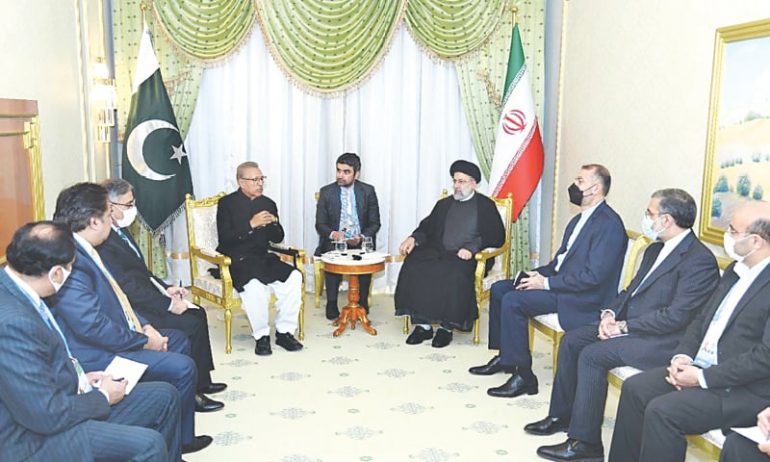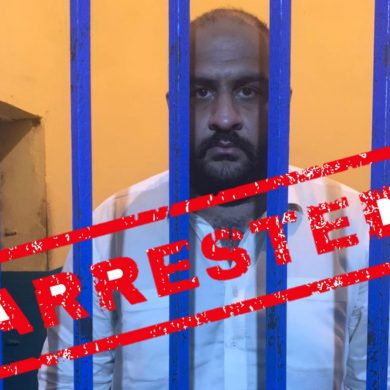President Dr. Arif Alvi has stated that the member states of ECO (Economic Cooperation Organisation) are among the least integrated into the area of trade which indefinitely directs attention towards unlocking their potential growth and development.
On Sunday (28 November), President Alvi said that intra-regional trade between ECO members accounted for only 8% of total trade, despite the fact that the region possessed all of the elements required for economic integration and rapid growth, including abundant natural resources, enterprising people, geographical proximity, and a shared culture and heritage.
The summit, titled ‘Into the Future Together,’ was hosted by President Gurbanguly Berdimuhamedov of Turkmenistan and attended by heads of ECO member states as well as Secretary-General Ambassador Khusrav Noziri.
On the sidelines of the summit, the president reaffirmed his commitment to expanding bilateral cooperation in separate meetings with several of his counterparts.
President Alvi stated during his speech at the summit that in order to remain competitive, national and regional economies one must move toward greater physical and virtual integration. He emphasized that such integration was critical for the ECO region and that the theme chosen for this summit was thus both appropriate and timely.
He urged the implementation of the ECO Vision 2025 and the Islamabad Declaration, as well as the strengthening of regional institutions such as the ECO Trade and Development Bank (ETDB) and the operationalization of the ECO Reinsurance Company (ERC).
President Alvi, who arrived in Ashgabat on Saturday, urged the ECO to move forward with the transit corridors planned under the Transit Transport Framework Agreement (TTFA). He praised the completion of the Islamabad-Tehran-Istanbul road corridor.
Regional Prosperity
President Arif Alvi described peace in Afghanistan as critical to regional connectivity, saying the country was facing a humanitarian crisis, a deepening liquidity crisis, and serious social and security implications following the end of a 40-year war. “We must all work together to prevent such a disaster, which can reignite chaos, conflict, and the threat of terrorism in Afghanistan,” he said, adding that the country’s frozen assets must be released to help alleviate the sufferings of the Afghan people.
Mr. Alvi stated that Afghanistan’s stability would also allow for the early implementation of agreed infrastructure and integration projects such as the TAPI gas pipeline, the CASA 1000 electricity grid connecting Tajikistan and Kyrgyzstan to Afghanistan, and Pakistan, and the construction of the Uzbekistan-Afghanistan-Pakistan railway line.
President Alvi reflected on the economic impact of Covid-19, noting that some ECO member states suffered disproportionately, with double-digit economic contractions, and that Pakistan was fortunate in that the strategy of smart lockdowns, generous social protection, and strategic economic stimulus that saved lives and livelihoods.
He said the government was offering a significant package of targeted support to cushion the impact of inflation on the most disadvantaged sectors of the Pakistani people, citing the price generated by the Covid-related interruption in supply chains.
He claimed that part of the global price inflation was caused by the $27 trillion fiscal stimuli provided by developed countries to restore their economy, as underdeveloped countries were unable to secure even a quarter of the $4.3 trillion required to recover from the crisis.
Common development agenda
The president urged ECO members to join other developing countries in adopting a “common development agenda” in order to return to a path of long-term growth.
Pakistan, as the next chair of the Group of 77 and China, will propose a development agenda that includes debt restructuring, redistribution of new SDRs to developing countries, increased concessional financing, mobilization of $100 billion in annual climate finance by developed countries, ending billions in illicit financial flows from developing countries and the return of stolen assets, and the creation of an equitable and open trading system and a global trading system.
He then welcomed ECO member states, as well as OIC members, to the next OIC Foreign Ministers’ Conference, which would be held in Islamabad on March 23, 2022. He emphasized the ECO’s role in stemming the tide of Islamophobia spreading across Europe, North America, and South Asia.
He said Pakistan relied on friendly ECO and Islamic countries to help the people of Jammu and Kashmir in exercising their right to self-determination, as they were suffering under India’s illegitimate occupation and enduring unimaginable brutality.
Wishing Turkmenistan well in its ECO chairmanship, the president said Pakistan was looking forward to Uzbekistan taking over as the next ECO chair.



